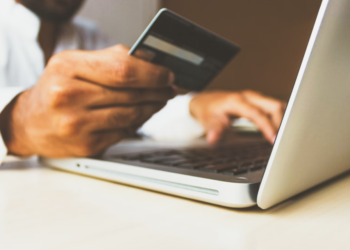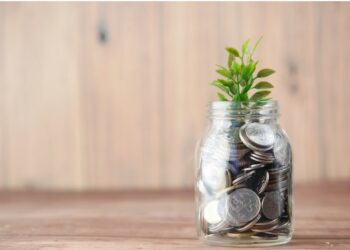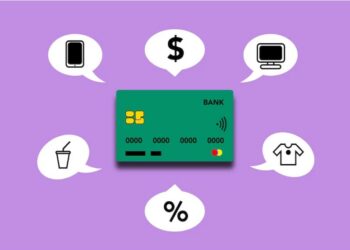You’re probably familiar with the concept of ‘buying your first home.’ But if you’re like most individuals, you may be overwhelmed by the idea of knowing the characteristics of every good house.
Buying a house is expensive, time-consuming, and sometimes even stressful! However, it doesn’t have to be this way. When you’re ready to buy your first home, you have options. There are many different types of homes available that can fit into any budget or situation, and we’re here to help you find the perfect home for your needs.

How to buy your first house – the ultimate guide for beginners
There’s a piece of old marketing advice that real estate agents are usually the best way to get information about houses. That advice isn’t completely wrong—most real estate agents have valuable information about the local market. This can be quite useful for a first-time buyer. But as it turns out, there’s a much more effective way to find out what’s involved in buying a home, and it starts by looking at what most first-time buyers aren’t being told.
Buying a house is a big deal. It’s also a lot of responsibility, so it’s important to consider the potential risks and make sure you’re prepared before you buy.
If you’re ready to start your home-buying journey, here are 5 important characteristics of every good house you should do before buying your first house.
Find the right house
When searching for a house, you might be under pressure to purchase quickly or else miss the perfect house. You are bombarded with information, so your choices seem infinite. This can make it difficult to know whether to move fast or take your time. But the best way to know which approach is best is to think about how much time you have to buy and how you feel about buying a particular home.
Don’t buy the house before you’ve seen it, said real estate agent and author John Lee Dumas. “The house is only half the story. You have to see it,” he said. He recommended looking at houses over long lunch dates and making sure you see a home that you love before signing the papers.
Read also: Top 7 summer vacation spots around the world
Know your budget
How much money do you plan to spend on a down payment? What kind of mortgage will you get? Do you plan to put a large portion of your earnings toward monthly payments? What about your current living situation? How much space do you need to comfortably accommodate a new family member?
There are a lot of questions to consider when it comes to buying a house. You will need to find a location that you like. This is important because your home will be your place to live in.
A home is also an investment. You need to think about how you will pay for it. You will need to save some money first. If you get a loan, you should pay back the loan as soon as possible. You should also figure out how much you can afford to spend on a mortgage. Consider buying a house that is big enough for your family. You will also need to pay attention to the neighborhood you’re moving into. You don’t want to move into a dangerous neighborhood.

Make sure you have good credit
Buying a home is a huge financial investment, especially if you’re purchasing your first home. But you should always consider the importance of a good credit score before making the plunge into homeownership.
The cost of the house is only part of the equation. The creditworthiness of the buyer is the other important part. This is called “credit score” and it is a number that is used to determine how good of a borrower a person is. The higher your score, the better the chances are that you can pay back your loan.
Having an excellent credit score means you’ll be eligible for better rates, terms, and even lower down payments than someone with a less desirable score. That’s why a good credit score should be a consideration before you start looking for your next place to live.
The most popular way to calculate your credit score is to take a copy of your credit report every four months and get the result based on your information.
This determines your payment history. If you haven’t been making payments for a long time on your loans, that might mean you won’t be able to keep up with the house payments.
Recommended: Love vs money: 5 budget-friendly activities for your honeymoon
Start saving
It can be challenging to start saving money as soon as you move into your new home. Most people only think about how much money they need to save after they’ve made the decision to buy a house. But you should start saving up for your new home well before you’ve bought anything.
The first thing you should do when you have decided to start saving is to set up an automatic savings plan. This is important because the earlier you start saving, the more you’ll save.
You should begin by calculating how much you need to pay each month for your living expenses. Then also set aside money for an emergency fund. If you’ve never had a savings account before, it’s a good idea to open one now so that you have a cushion in case something unexpected happens. A savings account is a great way to get money when you don’t have any cash available. You can also use the money in your savings account to help with the down payment on your new home. This way, you’ll be able to get a better loan.
Buy the right house for you
As a rule, people buy houses because they have a need or desire for one. If you can understand what those needs and desires are, you can figure out if a particular house is right for you.
Here are some things you should consider as the characteristics of every good house: What kind of neighborhood do you want to live in? Do you need a yard? Are you looking for a new home or a fixer-upper? Do you want to live in the suburbs or near a city? Are you looking for a home in the country or near the beach? What’s your price range? How much are you willing to pay for a home? And what are you willing to compromise on?
Your home is an investment that can bring you a lifetime of joy, comfort, and security. But if you’re new to the real estate game, don’t just follow the herd blindly. Don’t buy what everyone else is buying. Instead, take the time to do your research and learn everything you can about the characteristics of every good house, the market, and your specific neighborhood. You’ll be better off than your peers who bought before you.
Other important tips to note when buying your first home
- Don’t buy a house you can’t afford.
- Make sure the seller is honest about any problems in the property.
- Don’t move into your new home without knowing it inside and out.
- Check for major structural damage that can’t be repaired.
- Do some homework to find the best neighborhood for you.
- Understand your mortgage process.
- Find out what types of improvements you can do yourself to reduce cost.
- Have a general contractor on speed dial.
- Be prepared to have a long journey if you are buying a fixer-upper.
- Don’t pay too much for a house.
- If you can’t afford the house, rent.
- Never buy a house just because it’s a foreclosure.
- Don’t buy a foreclosure just because the price is right.
- Don’t make any hasty decisions when buying a new home.
In conclusion, buying a house is one of the biggest financial decisions we ever make. And whether you buy your house alone or with a spouse, it can be a very exciting time for you. Because of the most important characteristics of every house, you have to be completely ready to make this important decision.
In other words, if you are not ready to buy a house, you should probably not buy one. But once you are ready, you have a number of decisions to make. Above all, always consider the important characteristics of every good house. This article has helped you answer a few key questions regarding your home-buying experience. We’re confident that you will find these answers helpful when making your own decision on where to buy a house.
That said, keep in mind that the real estate market is highly competitive, so it will take time and patience to find the right house. And when you’re ready you can pay for your brand-new house using Changera app. Download on iOS or Android







Discussion about this post